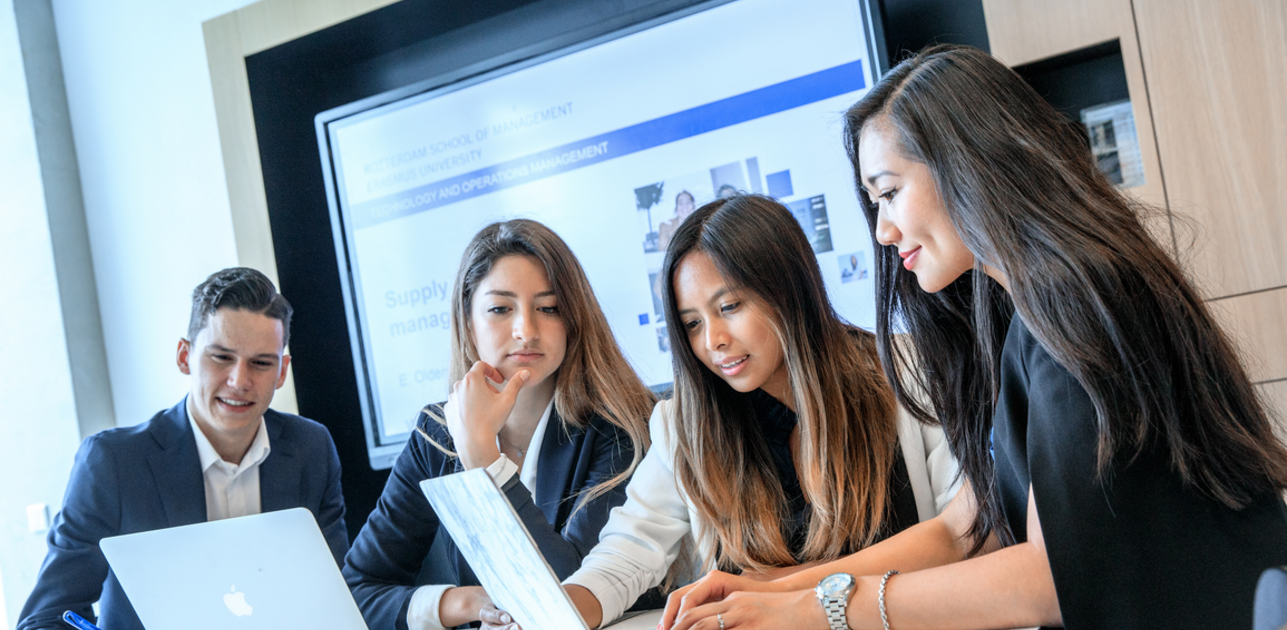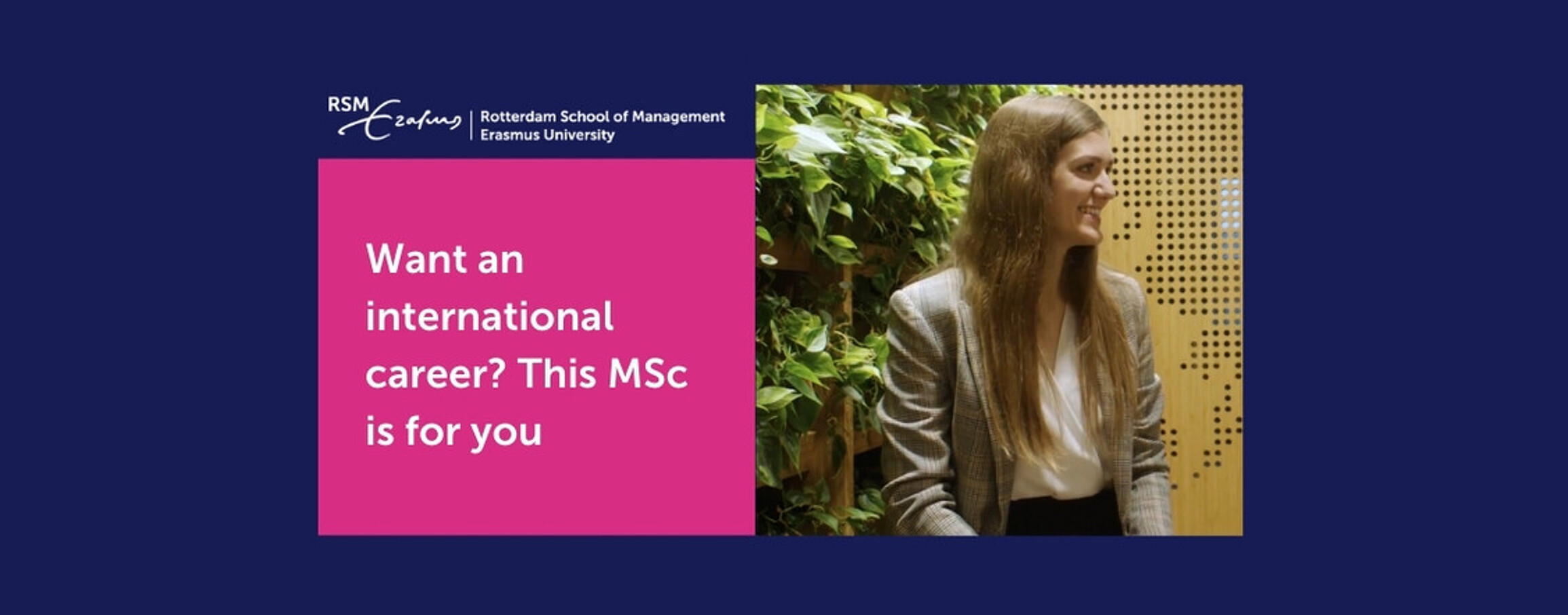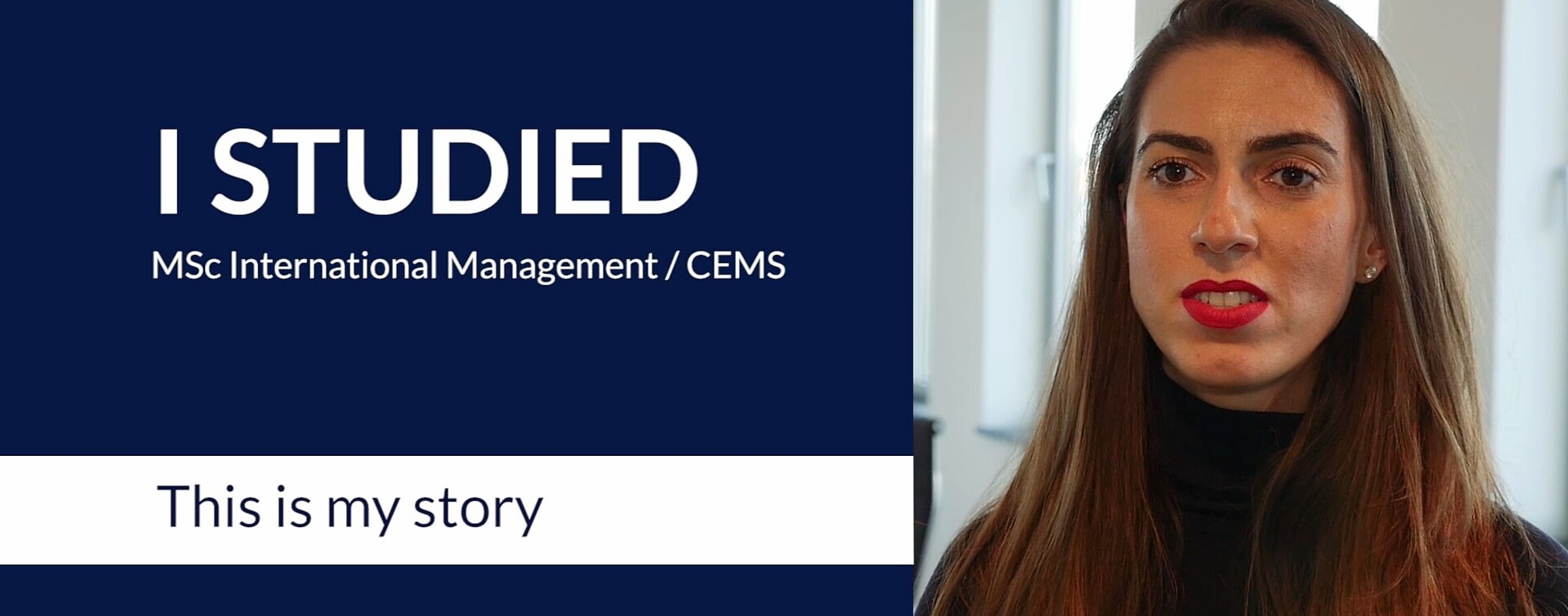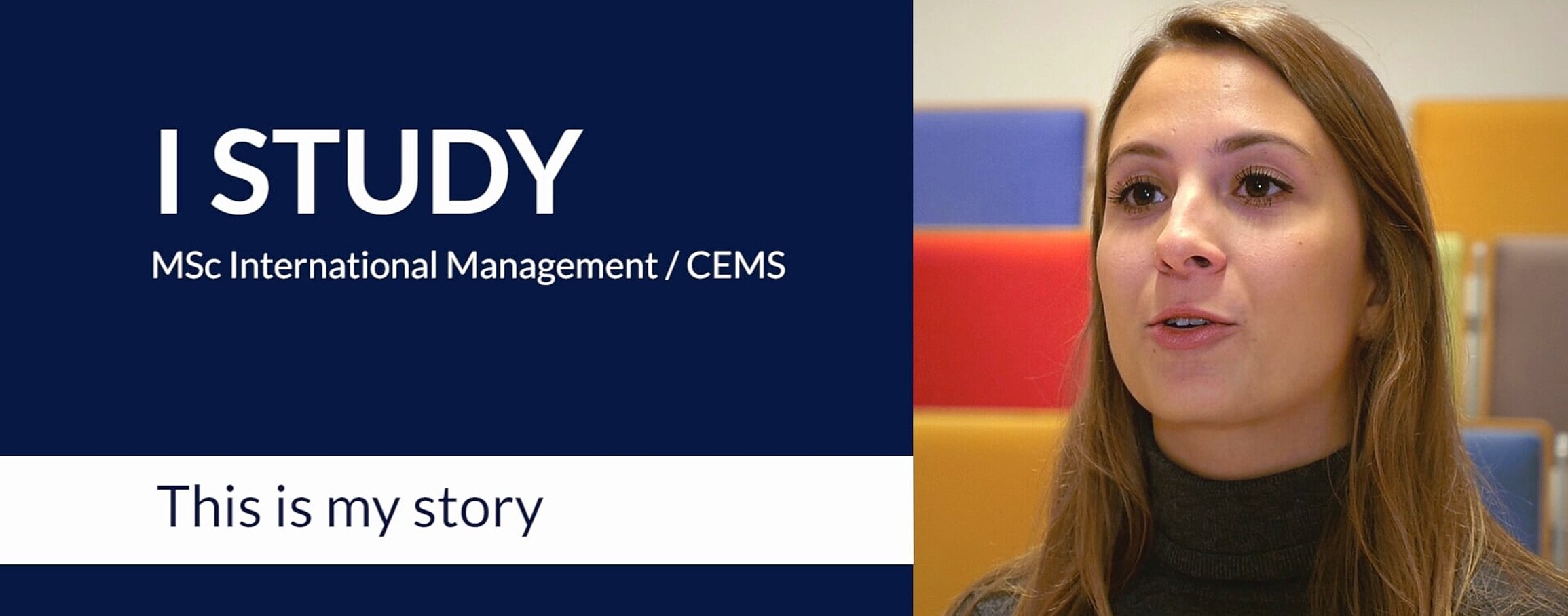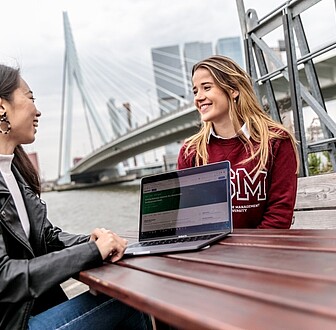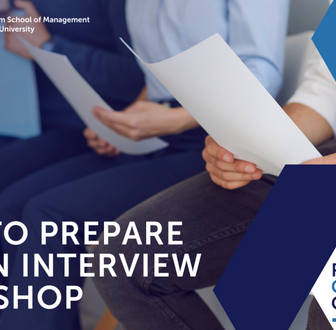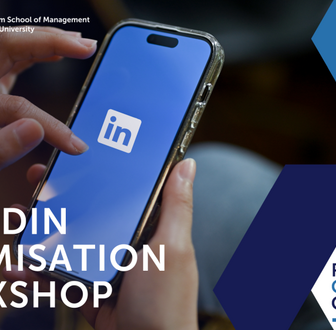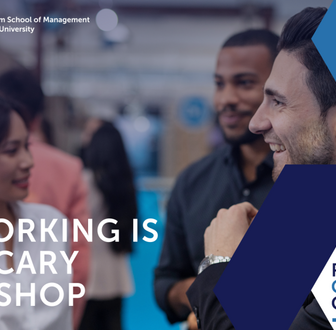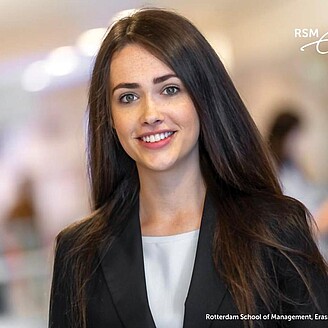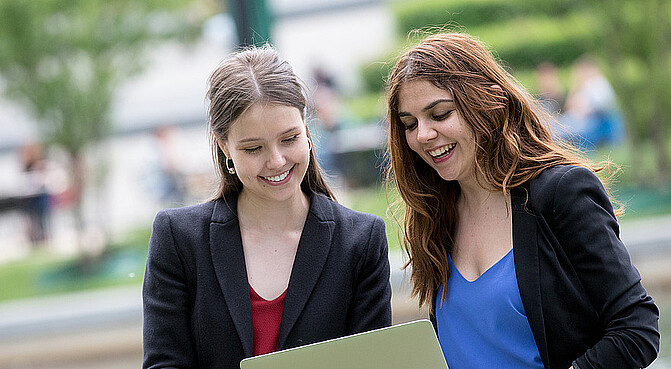Do you want to know more about the MSc International Management/CEMS?
The video below will answer the most frequently asked questions about the programme.
RSM’s MSc International Management/CEMS is an 18-month programme. It is divided into three semesters. During the first two semesters, you must complete the CEMS programme components to qualify for the CEMS MIM degree. In the third semester, you will complete the research clinic, your master thesis and the personal leadership development track as part of the MSc degree requirements. The total study load of the programme is 90 ECTS. You will spend either your first or second semester at one of the other 33 CEMS partner universities.
International management is a multidisciplinary field, spanning topics like global leadership, international strategy, international finance, and global supply chain management, as well as courses with a more innovative focus and topical content such as innovation management, marketing in the age of AI, and corporate venturing.
Throughout the curriculum, you’ll be part of the CEMS network of prestigious business schools, corporate partners and alumni which gives you access to companies and will inspire you to discover which career path suits you best.
Please note that core courses and electives are subject to change each academic year. While some electives are very popular and we can place most students in the elective(s) of their choice, there are no guaranteed places.
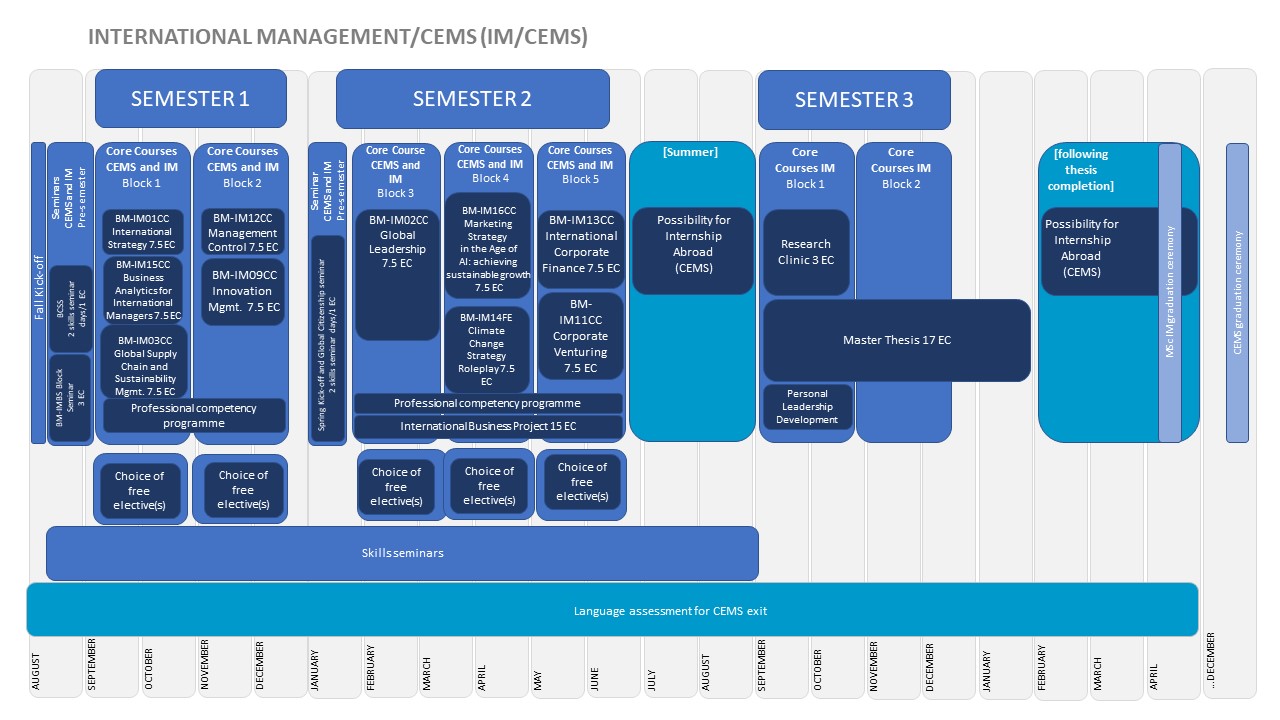
Block Seminar
Spend a full one week with the European Space Agency (ESA) and investigate how you can turn space-based technology into a business, or consult ESA’s space-based startup companies about how to grow and succeed in the market place.
International Strategy
Learn about the challenges and complexities of international business and develop insights how to design effective strategies.
Global Supply Chain and Sustainability Management
Explore the opportunities and challenges related to the sustainable operations and supply chain strategies in internationally operating companies.
Business Analytics for International Managers
Learn how to deal with the rapid growth in data generation, and how to take advantage of it from a management perspective.
Management Control
Understand how to develop management control systems that align managerial behaviour and decision-making with organisational goals.
Innovation Management
Learn how to successfully analyse and implement an innovation strategy and to manage the innovation process.
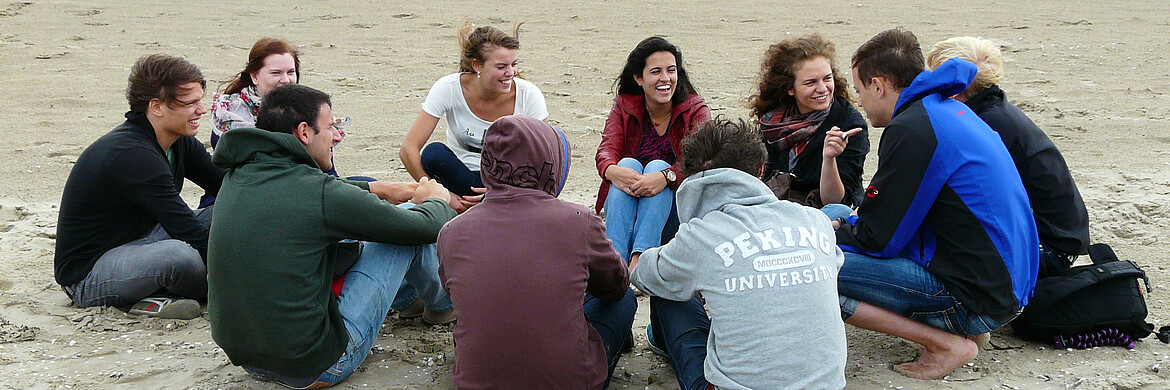
Global Citizenship Seminar
Understand the role and relevance of the United Nations’ Sustainable Development Goals for business and reflect on your own role and responsibilities as a future global leader.
Global Leadership
Develop a deeper understanding of the issues that global leaders face, and prepare yourself for a leadership role in international organisations.
International Business Project
Act as consultants for a company, and develop recommendations for its real-world problem in a team of five students.
Marketing Strategy in the Age of AI: Achieving Sustainable Growth
Learn how big data and marketing analytics can inform sustainable marketing decisions, for example how to respond to competitors, how to approach customers, and how to respond to market trends and changing customer needs.
Climate Change Strategy Role-Play
Investigate how climate change and climate policy affect the future of business while you participate in a two-day international simulation event with 10 other CEMS schools.
Corporate Venturing
Learn how large firms can innovate by supporting new businesses inside their company.
International Corporate Finance
Acquire the knowledge and skills that a manager needs for good investment, financing and operating decisions at internationally operating companies.

Research Clinic
Learn how to develop interesting and relevant research questions, and how to how to research them.
Professional Competency Programme
Learn to manage complexity, connect with others, and understand your personal and social impact as a leader. This programme helps you take crucial steps towards your ideal career, emphasising sustainability, mentoring, and future career planning.
Master Thesis
Conduct a study in the field of international management. You’ll work independently on a topic of your choice and improve your skills in critical thinking, academic writing, conducting empirical research and managing a project.

International internship
The international internship is part of the CEMS curriculum and has a minimum of eight weeks. It is designed to be an intercultural experience, so it must be completed in a country outside of the country of your CEMS home school. This is your chance to get a real taste of a future profession or organisation in another country.
International exchange
As an IM/CEMS student, you will be required to spend the autumn or spring semester at a CEMS partner university. Each school applies the same curriculum structure to their course design and a local CEMS Club provides an active social life for the international student body, helping to build the CEMS community spirit.
Skill seminars
Skill seminars are training seminars in practical skills you can join within the CEMS network. They are essential to kick-starting an effective professional career, and fundamental to adjusting easily to an international management environment. Skills seminars can be offered by a CEMS school or by CEMS corporate partners, and are often offered in small-group settings to ensure and interactive dimension. Topics can include presentation skills, project management skills, team work skills, and negotiation skills.
Languages
On completion of the International Management/CEMS programme, you must have minimum proven proficiency in at least two languages in addition to English. You are expected to improve your language skills of your own accord, and your standards in both foreign languages should improve during your studies at RSM. Erasmus University's Language & Training Centre organises special language courses and language level tests.
RSM’s MSc International Management/CEMS programme provides excellent preparation for your international management career. Evidence shows that graduates obtain good jobs.
CEMS graduates from all CEMS schools in 2017 showed that they find jobs quickly and the skills we teach at RSM – plus the international networking aspect of our programme – really work:
- 69% are employed within three months of graduation or continuing their studies*
- 75% work for a multinational company
- 36% work outside their home country
- 51% of CEMS graduates work for a CEMS Corporate Partner
- 98% would recommend their CEMS experience to a friend
*Excluding graduates who pursued an internship, further education or took a year off after graduation.
You will graduate with the skills needed to adapt to changing environments; alumni have told us this helps them in earning promotions.
Our programme gives you the skills to be able to work in a wide variety of industry sectors. CEMS graduates work in:
- Consulting 28%
- Technology 18%
- Consumer goods 13%
- Finance 11%
- Education 4%
- Pharma/Healthcare 4%
- Other 4%
Curious to see what our alumni are doing?
Good to know
Non-EEA nationals who have earned a diploma from a higher education institute in the Netherlands can apply for a special residence permit called the orientation year after completing their studies. The 'Orientation Year for Graduates Seeking Employment' is a residence permit aimed at retaining foreign talent for the Dutch labour market. During this orientation year you are free to work without a work permit. Participants who find a job during this period can change their orientation year into a residence permit for Highly Skilled Migrants under more favourable terms.
For the most up-to-date information please visit the following website.
What's next after your studies? The RSM Career Centre is your guide for an impactful career. Its expertise in the labour market, personal branding and connections with employers will prepare you for your business career. Get ready for some exciting job fairs, workshops, speed interviews and coaching. You may land your first internship or job before you even graduate!
You’re a member of the RSM community from Day 1. After you graduate, you’ll also be a member of the RSM alumni network. The countless benefits include networking events worldwide with local chapters, lifelong learning and professional development, mentoring opportunities and access to the latest business knowledge and research. Your study at RSM is the first step towards being part of this inspiring community that you’ll be part of forever.
Talk to our current students!
The expected tuition fee for the 18-month MSc International Management - CEMS programme is approximately €36,900 for non-EEA students, and approximately €3,795 for EEA students in 2025-2026. Please note that all these tuition fee tariffs are subject to change.
For EEA nationals who have already completed a master in the Netherlands (and obtained the diploma) the tuition fee for a 2nd master is approximately €21,600.
There are other costs associated with the MSc International Management - CEMS programme, for more information please review the “Other expenses” section below thoroughly.
Scholarships
The number of scholarships is limited and mainly merit based. If a scholarship covers only the tuition fees, be aware that you need to finance your own living expenses (rent, food and insurances) for the duration of your studies. RSM does not offer scholarships for the pre-master programme. We do however offer a maximum of 2 scholarships per academic year to RSM pre-master students enrolling in an MSc programme.
Rotterdam School of Management, Erasmus University (RSM) offers multiple scholarships to prospective students from non-EEA countries who are not entitled to pay the EEA tuition fee, provided their grades are considered ‘excellent’. RSM also offers one scholarship, the Erasmus Trustfonds Scholarship, to students from EEA countries.
Besides scholarships awarded by RSM, there are also scholarships awarded by the Dutch government or other organisations that are available if you meet certain criteria such as nationality, age, etc We have listed some of them below but we encourage you to use resources such as Grantfinder or the Scholarship Portal to find additional scholarships.
- StuNed
- G&D Europe Scholarship
- NN Future Matters Scholarship
- Russia: The Global Education Programme
- LPDP
- OKP
Scholarship tips
- Contact the Ministry for Higher Education in your home country to see whether there are scholarship options.
- We have virtual information session covering all you need to know about scholarships and financial aid. Watch it here.
For students from the Netherlands or the EU/EEA, it may be possible to apply for limited funding towards payment of your tuition fees. Find out whether you meet the nationality and age requirements and read more information about the application process here.
IM/CEMS is a program that - if you are still eligible - entitles you to a maximum of 1 year's use of your DUO entitlements. Students who have received a basic grant and possibly a supplementary grant from DUO in the first year of IM/CEMS and meet the following additional conditions may be eligible for an additional half year (6 months) of financial support, which is equal to the grant received in the last month during the program. Please contact the student counselors for more information.
Conditions Financial Support Fund
Students eligible for financial support due to extended master programmes are those who:
a) are enrolled full-time in a public funded Erasmus University Rotterdam degree programme, which is extended on the base of article 7.4, paragraph 8 of the Dutch Higher Education and Research Act;
b) are enrolled as first enrollment (hoofdinschrijving) in the study programme as referred to under a, for which the student pays statutory tuition fee;
c) for this program, is or was entitled to study finance (prestatiebeurs hoger onderwijs) as referred to in the Wet Studiefinanciering 2000, and during the period corresponding to the study load that exceeds 60 ECs, and is no longer eligible for student finance in the form of an additional grant.
Other expenses
After having filled in all of the necessary application information on the Online Application Form (OLAF) and uploaded the required documents, applicants with a degree obtained outside the Netherlands will be asked to pay a non-refundable €100 handling fee. This fee can be paid online via the Erasmus Payment System which uses either iDEAL (for those with a Dutch bank account) or PayPal (which can be linked to any bank account or credit card worldwide). It is important that applicants complete the payment process as indicated, otherwise the system cannot register the payment.
The additional expenses in addition to tuition and general living costs (see below) vary per programme and may include:
- Study materials such as books, readers and business cases
- Costs involved in kick-off meetings
- Costs related to travel, international excursions and compulsory exchange semesters or internships abroad
Approximately € 300 - 500 (per year), these costs differ per programme.
For a reasonable standard of living in the Netherlands, you should have an income of between €1,235-€1,735 per month depending on your lifestyle. Further information about the costs of living in the Netherlands and related subjects can be found on this website. Below is an example of monthly expenditures:
| Furnished accommodation, including gas and electricity | € 500-1,000 |
| Medical insurance | € 50 |
| Telephone/internet | € 15-40 |
| Food | € 300 |
| Books, recreation, clothing | € 300 |
| Public Transportation | € 50 |
| Total | € average 1235 - 1735 |
| Other potential expenses: | |
| Buying or renting a bike | € 100 - 250 (per year) |
| In private residence (not student housing) yearly municipal and water taxes | € 100 - 300 (per year) |
| Study trip or other study related travel | € 300 - 500 (per year) |
Please ensure, prior to your arrival at RSM, that you have or will have sufficient funding available to finance your stay at RSM. Finding a part-time job, may be an option, but can not be guaranteed. You should therefore not rely on finding other ways to supplement your income during your studies. For additional information on obtaining a part-time job, visit the website of the Nuffic.
For EEA students there are no formal restrictions in finding work in the Netherlands, but students with a lack of Dutch language skills will find it difficult to secure employment. Non-EEA students are subject to labour regulations, which makes the likelihood of obtaining a work permit very small. We therefore ask students not to rely on this possibility. We do not encourage students to combine studies with the heavy workload from a part-time job.
Additional programme related costs
The block seminar is a one-week course within the CEMS programme that takes place at the beginning of Term 1 at all CEMS schools. Block Seminars bring together professors and students from various CEMS institutions and therefore require travel which have additional costs of approximately €310*. These costs have to be paid in advance and are non-refundable.
*The cost for the block seminar can be waived for RSM students (not incoming exchange students) who are able to prove financial hardship.
Costs for this seminar will be approximately €100.
The selection for IM/CEMS is very competitive so it's important that applicants are well prepared for the selection process.
For information about the CEMS programme and the partner schools:
- visit the CEMS website and check the official CEMS videos
- talk to current students of the programme
- familiarize yourself with the admissions requirements, including the CEMS specific language requirements.
Apply on time! Application starts on the 1st of October and closes on the 31st of January. We advise you to apply as early as possible. If the majority of applicants have applied early, the final results can also be published earlier
Next to meeting the minimum requirements for the MSc International Management, applicants also go through the CEMS selection interview.
Approximately 100 students will be invited to the interview round. The exact number depends on the amount and quality of applications.
The online interview will focus on your motivation to participate in the programme as well as two key CEMS competencies: initiative taking and result orientation.
The final ranking will be made in the beginning of March and is based on the scores of the selection interview.
Depending on the number of available exchange spots, approximately 75 students will be selected for the programme and receive an offer of admission.
All students in the IM/CEMS programme complete one semester at one of the CEMS partner schools.
During the application process, applicants are asked to indicate their top 12 preference of the CEMS partner schools for exchange. You will be informed of the exchange destination and semester you have been allocated together with the offer of admission around the first week of March.
Exchange slots per school are limited. This means that students applying for popular destinations may not be selected for their first choice, but instead for their second, third, or other preferred school. Applicants with higher grades/GMAT scores and interview results will have better chances for selection for their preferred destination.
A specific exchange destination should not be your main reason for choosing the IM/CEMS programme.
In addition, the following guidelines will be followed:
-
external (non-RSM) applicants are preferred to spend the fall semester at RSM, allowing them to experience student life at RSM and in Rotterdam first, prior to going on exchange
-
exchange is not possible to the applicants country of origin or the country of undergraduate studies/bachelor programme
- It is not possible to change or negotiate your exchange destinations after the selection.
Information on the CEMS partner schools can be found on www.cems.org.
| Country | University name |
Australia | The University of Sydney Business School, USYD |
Austria | Vienna University of Economics and Business Administration, WUW |
Belgium | Université Catholique de Louvain, UCL (Louvain-la-Neuve) |
Brazil | Fundaçao Getulio Vargas - EAESP (Sao Paulo) |
Canada | Richard Ivey School of Business (London) |
| Chile | Universidad Adolfo Ibanez |
China | Tsinghua SEM, TSEM (Beijing) |
| Czech Republic | University of Economics Prague, VSE |
Denmark | Copenhagen Business School, CBS (Copenhagen) |
| Egypt | The American University in Cairo School of Business |
Finland | Aalto University School of Economics (Helsinki) |
France | HEC Paris, (Jouy-en-Josas) |
Germany | University of Cologne, UoC |
Hong Kong | Hong Kong School of Science and Technology, HKUST |
Hungary | Corvinus University of Budapest, CUB |
India | Indian Institute of Management Calcutta |
Ireland | UCD Michael Smurfit School of Business, UCD (Dublin) |
Italy | Università Commerciale Luigi Bocconi, UB (Milan) |
Japan | Keio University (Tokyo) |
| Korea (South) | Korea University Business School (KUBS) |
Norway | Norwegian School of Economics and Business Administration, NHH (Bergen) |
Poland | Warsaw School of Economics, SGH |
Portugal | Faculdade de Economia da Universidade Nova de Lisboa (Lisbon) |
Singapore | NUS Business School |
| South Africa | University of Cape Town Graduate School of Business |
Spain | ESADE (Barcelona) |
Sweden | Stockholm School of Economics, SSE |
Switzerland | University of St. Gallen, HSG |
Turkey | Koc University, Graduate School of Business (Istanbul) |
United Kingdom | London School of Economics, LSE |
| United States | Cornell SC Johnson College of Business |
The application for the 2025 intake opened on 1 October. This programme has a set deadline of 31 January and a selective admissions process. The programme has a maximum capacity of 75 students.
Find out everything you need to know about entry visas & residence permits for non-EU or EEA students at RSM.
Finding housing in Rotterdam can be tricky. To help you in your search for housing, we have compiled some helpful resources
